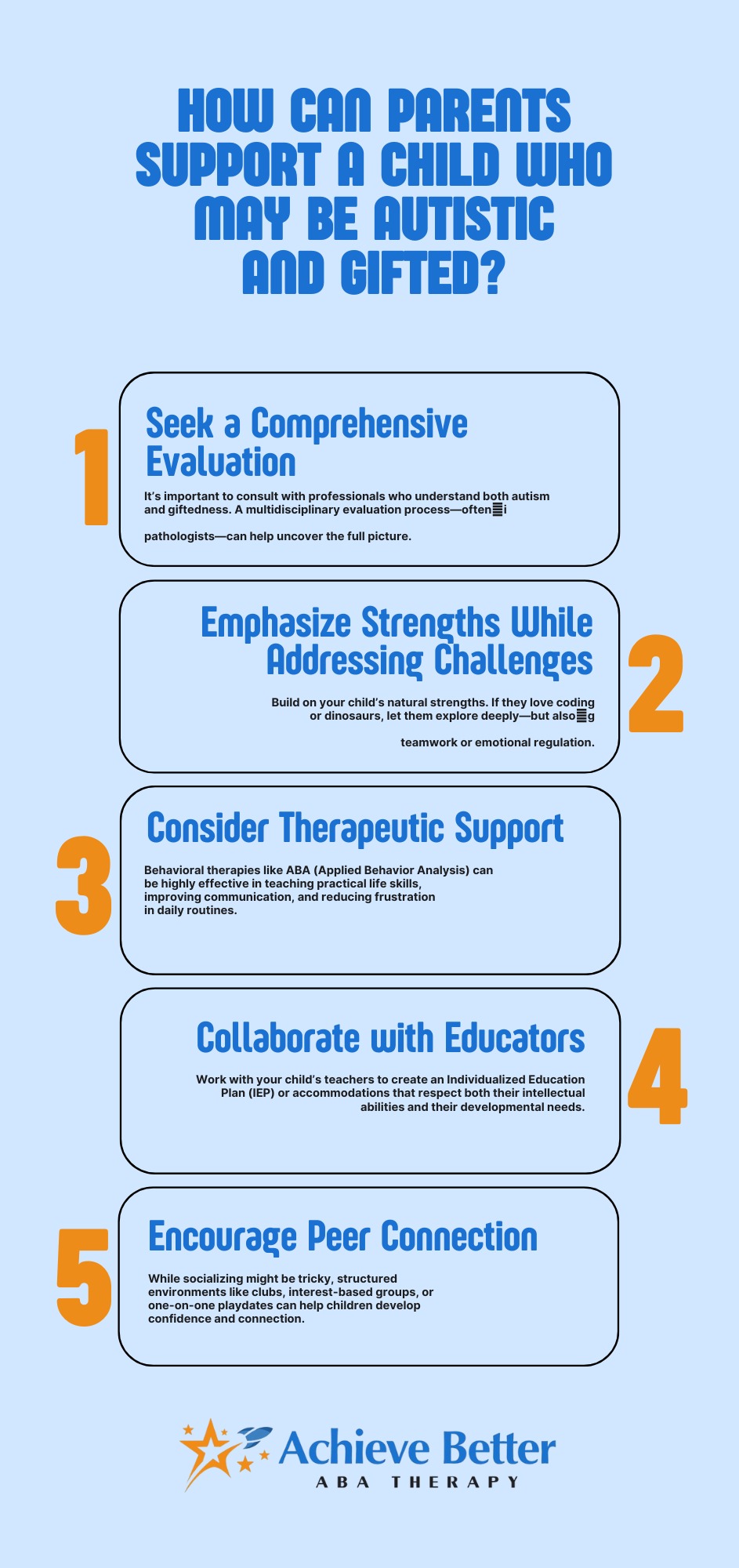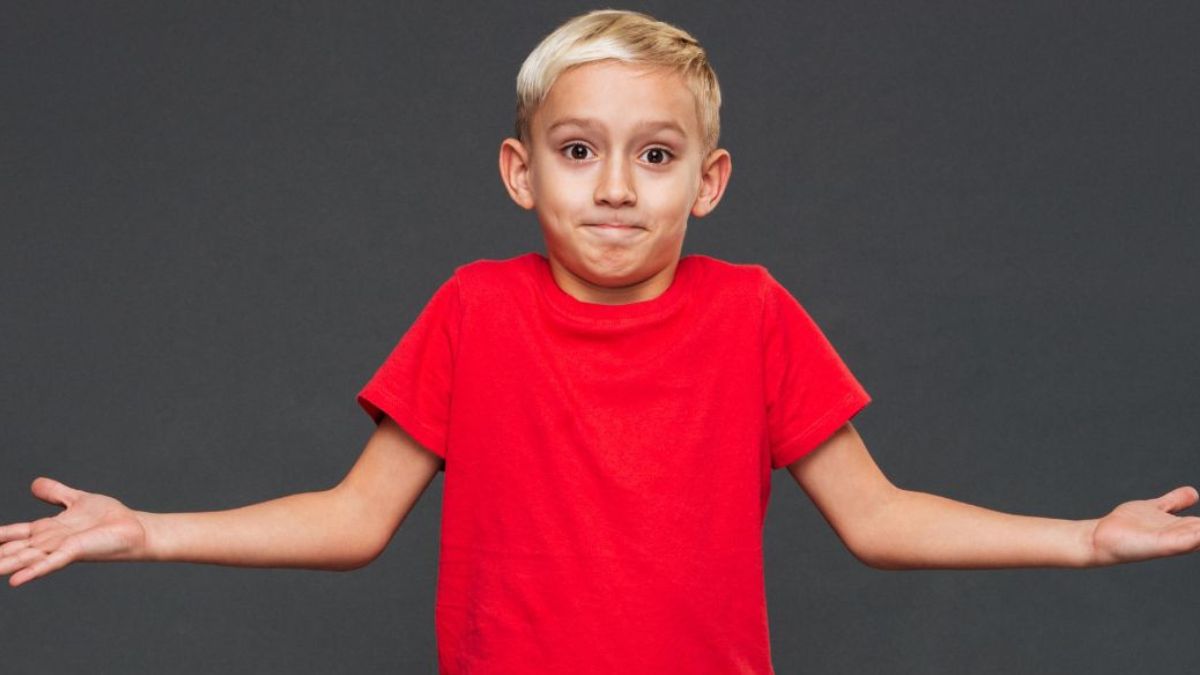The Link Between Autism and High Intelligence Explained

Key Points:
- While autism and high intelligence can co-occur, they are distinct conditions with different characteristics.
- Giftedness may mask signs of autism and vice versa, making diagnosis complex.
- Understanding the nuances of autism vs high intelligence can help parents better support their children’s needs.
Some children seem to solve puzzles faster than they learn to speak. Others ace math problems but struggle with social cues. As a parent, it can feel confusing: Is your child simply gifted—or is something deeper at play? The overlap between autism and high intelligence often leaves families searching for clarity.
Is There a Link Between Autism and High Intelligence?
Yes, there can be a link between autism and high intelligence—but they are not the same. The phrase “autism vs high intelligence” is often discussed among parents, educators, and clinicians because the two traits can look similar on the surface. However, understanding the differences is essential for getting the right kind of support.
Autism, or Autism Spectrum Disorder (ASD), is a condition that affects how individuals process social cues, express themselves, and behave. High intelligence, often referred to as giftedness, typically relates to advanced cognitive abilities or exceptional talents in specific areas. While the two can coexist in the same child, they are not interchangeable.
Parents are often surprised to learn that a child can be both highly intelligent and autistic. In fact, gifted children with autism are sometimes referred to as "twice-exceptional," a term that acknowledges their unique combination of strengths and challenges. But understanding the nuance of autism vs high intelligence is critical—especially when looking for the most helpful interventions.
How Can Autism and High Intelligence Look Similar?
The confusion between autism and high intelligence often arises because of overlapping characteristics. In both cases, children might:
- Display intense focus on topics of interest
- Prefer routine and structure
- Struggle with social interactions
- Show advanced knowledge in niche subjects
These similarities can sometimes lead to misdiagnosis or missed diagnoses altogether. A gifted child might be seen as socially awkward or overly intense, while an autistic child with high intelligence might be assumed to be just quirky or ahead of their peers. This overlap makes early detection more difficult but also more important.
Key Differences Between Autism and High Intelligence
While there are shared traits, several important differences can help parents understand the distinction between autism and high intelligence:
1. Social Interaction
- High Intelligence: Gifted children may prefer intellectual conversations over play but still understand and follow social rules when they want to.
- Autism: Autistic children may not recognize or intuitively follow social rules and might have difficulty interpreting facial expressions or tone of voice.
2. Communication Style
- High Intelligence: Gifted kids often have advanced vocabularies and can express their thoughts clearly.
- Autism: Communication can be more literal or rigid, and some autistic children may have delayed speech or struggle with back-and-forth conversation.
3. Interests and Routines
- High Intelligence: Interests are broad or deep but can change frequently.
- Autism: Interests are often intensely focused and repetitive, with a strong need for routine.
Understanding these distinctions helps to clear up the autism vs high intelligence debate and provides a clearer path toward accurate evaluation and support.
What is “Twice Exceptional” and Why Does It Matter?
A “twice-exceptional” child is one who is both gifted and has a learning difference or developmental diagnosis—like autism. These children are incredibly unique. They might perform several grade levels ahead in one subject, while needing extra support in others, especially in areas like emotional regulation or peer relationships.
Recognizing a child as twice-exceptional matters because:
- Traditional gifted programs may overlook social or behavioral challenges.
- Special education services may underestimate intellectual potential.
A nuanced understanding ensures that these kids are neither under-challenged nor misunderstood. Instead of asking whether it’s autism vs high intelligence, we should ask how we can nurture both their strengths and their needs.
How Can Parents Support a Child Who May Be Autistic and Gifted?
If your child shows signs of both autism and high intelligence, there are several ways to support their development effectively:

Myths About Autism and Intelligence
There are many misconceptions around autism and intelligence. Let’s address a few common ones:
- “All autistic people have low intelligence.”
Not true. Intelligence levels among autistic individuals vary widely, just like in the general population. Some are highly gifted. - “A smart child can’t be autistic.”
Intelligence doesn't cancel out autism. A child can be brilliant and still face challenges with sensory sensitivities, emotional regulation, or social communication. - “If my child is verbal, they’re not autistic.”
Many autistic individuals are highly verbal. Autism is more about how a person perceives and processes the world than whether they can speak.
Understanding the Whole Child
Parents often feel torn when faced with signs that their child may be struggling. Is it autism or giftedness? Or both? Rather than focusing on autism vs high intelligence as a binary choice, it's more helpful to view each child as a whole, complex individual. Labels can guide us toward resources, but love, patience, and informed support make the biggest difference.
The most important takeaway is that no child should have to choose between being supported for their gifts or their needs. They deserve both. And so do you, as a parent, trying to navigate this journey with compassion and care.
Ready to Support Your Child’s Growth? Let’s Talk.
If you're looking for compassionate, personalized support for your child, Achieve Better ABA offers expert ABA therapy to help children build life skills, improve communication, and thrive in their everyday environments.
We specialize solely in ABA therapy in North Carolina, and our experienced team works with families to create meaningful, measurable progress for children on the autism spectrum. Whether your child is newly diagnosed or already receiving services, we’re here to walk alongside you with warmth and expertise.
Let’s take the next step together. Reach out to us today and discover how the right support can empower your child’s strengths and nurture their potential!
Similar articles
Contact us today to learn more.




.jpg)

.jpg)





